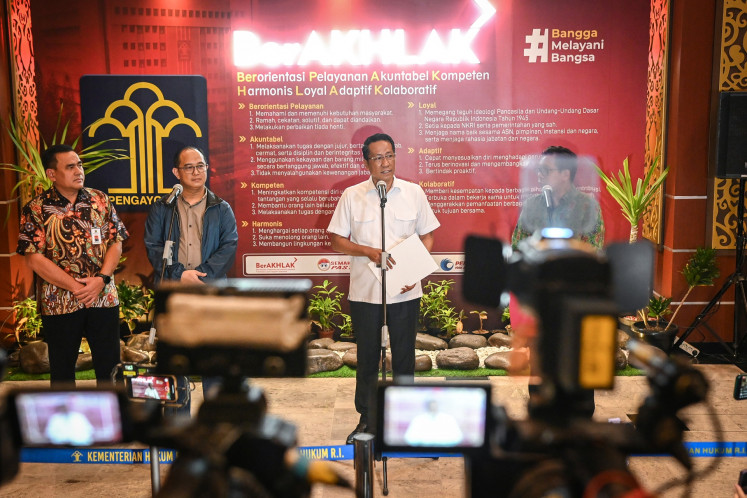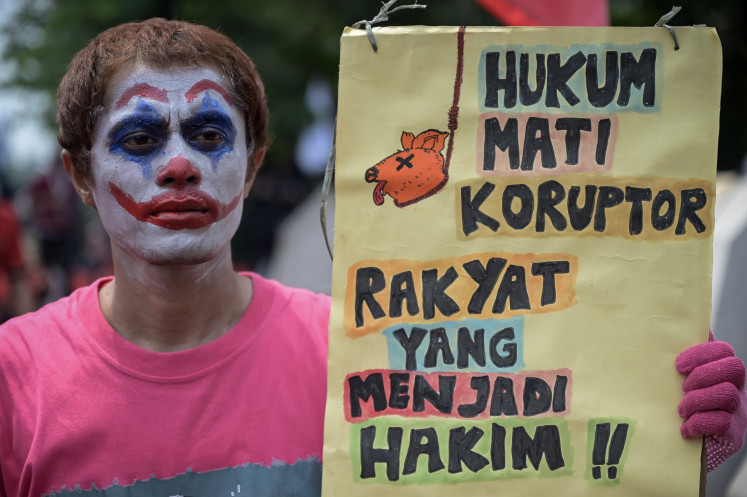Popular Reads
Top Results
Can't find what you're looking for?
View all search resultsPopular Reads
Top Results
Can't find what you're looking for?
View all search resultsCommunity-based education information system in NTT
Local officials in East Nusa Tenggara (NTT) are using a community-based education information system developed by UNICEF to fight illiteracy and obtain data on the number of dropouts needing assistance in six regencies
Change text size
Gift Premium Articles
to Anyone
L
ocal officials in East Nusa Tenggara (NTT) are using a community-based education information system developed by UNICEF to fight illiteracy and obtain data on the number of dropouts needing assistance in
six regencies.
Yulida Pangastuti, who works in UNICEF’s Kupang office, told reporters in Watebula, Southwest Sumba regency, on Sunday that a lack of data had hindered government efforts to reduce the number of dropouts.
“The existing data issued by government institutions is not accurate because all of it is based on assumptions. With the help of professional workers, UNICEF is trying to develop a community-based education information system in the six regencies, namely Alor, Belu, Timor Tengah Selatan, East Sumba, West Sumba and Kupang City,” Yulida said.
The system implemented in NTT was first used in pilot project in Polewali Mandar, West Sulawesi, in 2007, where officials were able to intervene and help over 1,000 dropouts to get back into school.
“The system is based on data. Its aim is to give information to the government on the number of dropouts, their names, their home addresses and the reasons behind their inability to continue their studies,” she said.
According to Yulida, the data was collected by skilled census workers.
Petrus Beyleto, the director of the Rukun Sejahtera Foundation in Belu, said that officials had been collecting data for the system since 2010.
“We collect data and map the educational data for children aged 0 to 18 years. This data is now used as guidance to make educational preparations, especially to help the success of the [central government’s] nine-year compulsory education program,” he said.
The activity, which was supported by UNICEF, Petrus said, was very beneficial for making accurate educational preparations and for increasing local awareness of educational problems.
Meanwhile, Nehru of the Poliwari Mandar Education Agency drafting team said that the local government had implemented the data collection system in 132 villages in 16 districts in the regency.
“The Polewali Mandar regency administration has used the system’s data as the main source of data to make any policy, either in the education sector or in others,” Nehru said.










